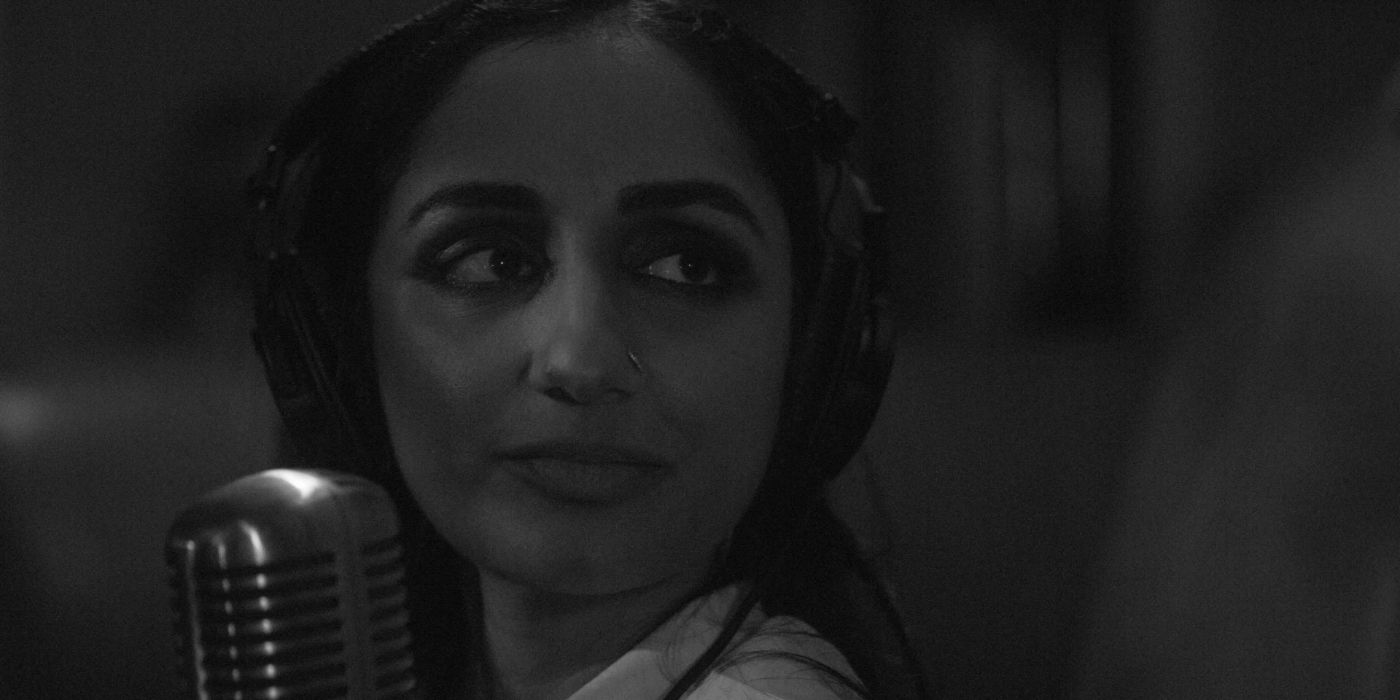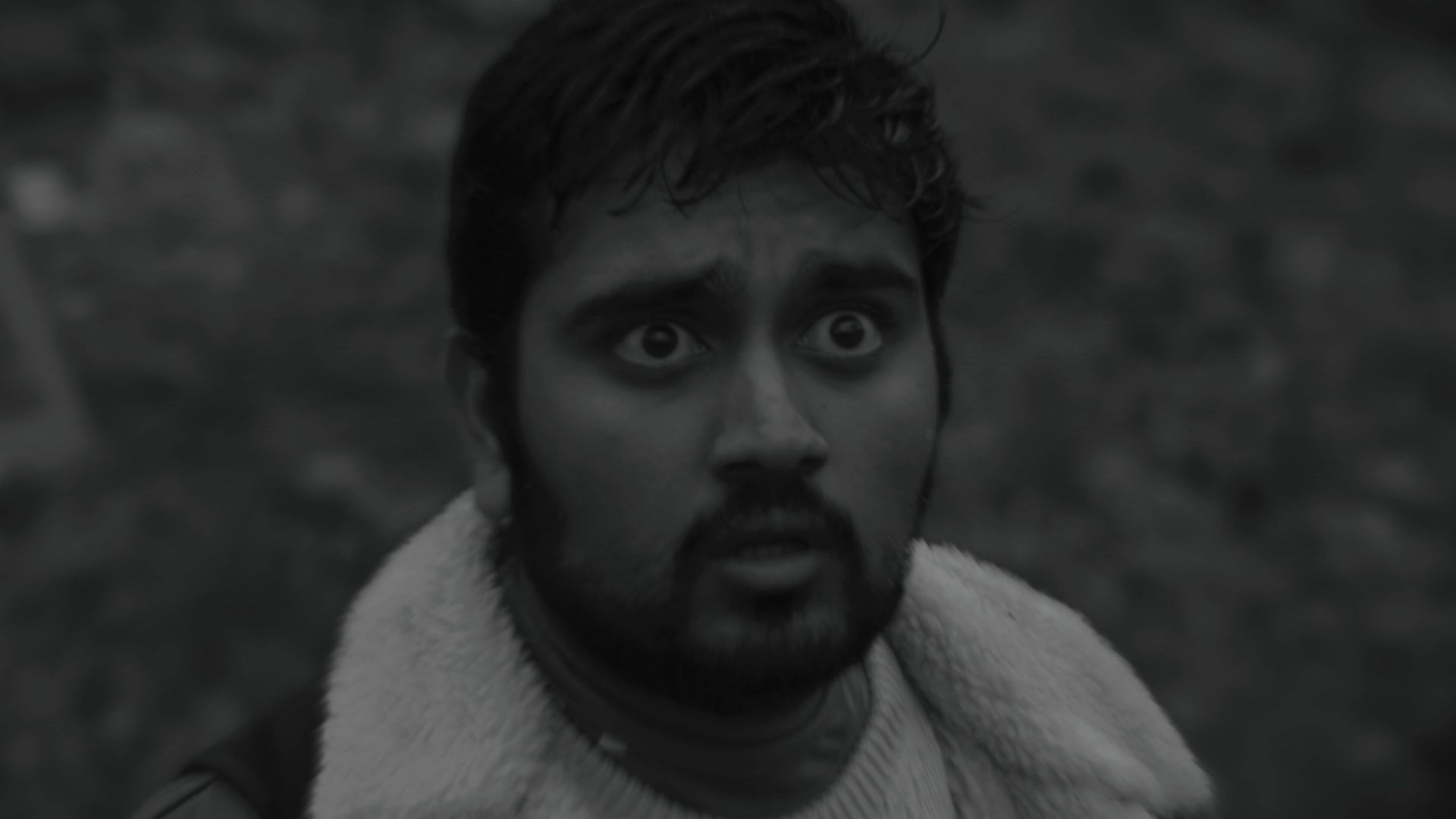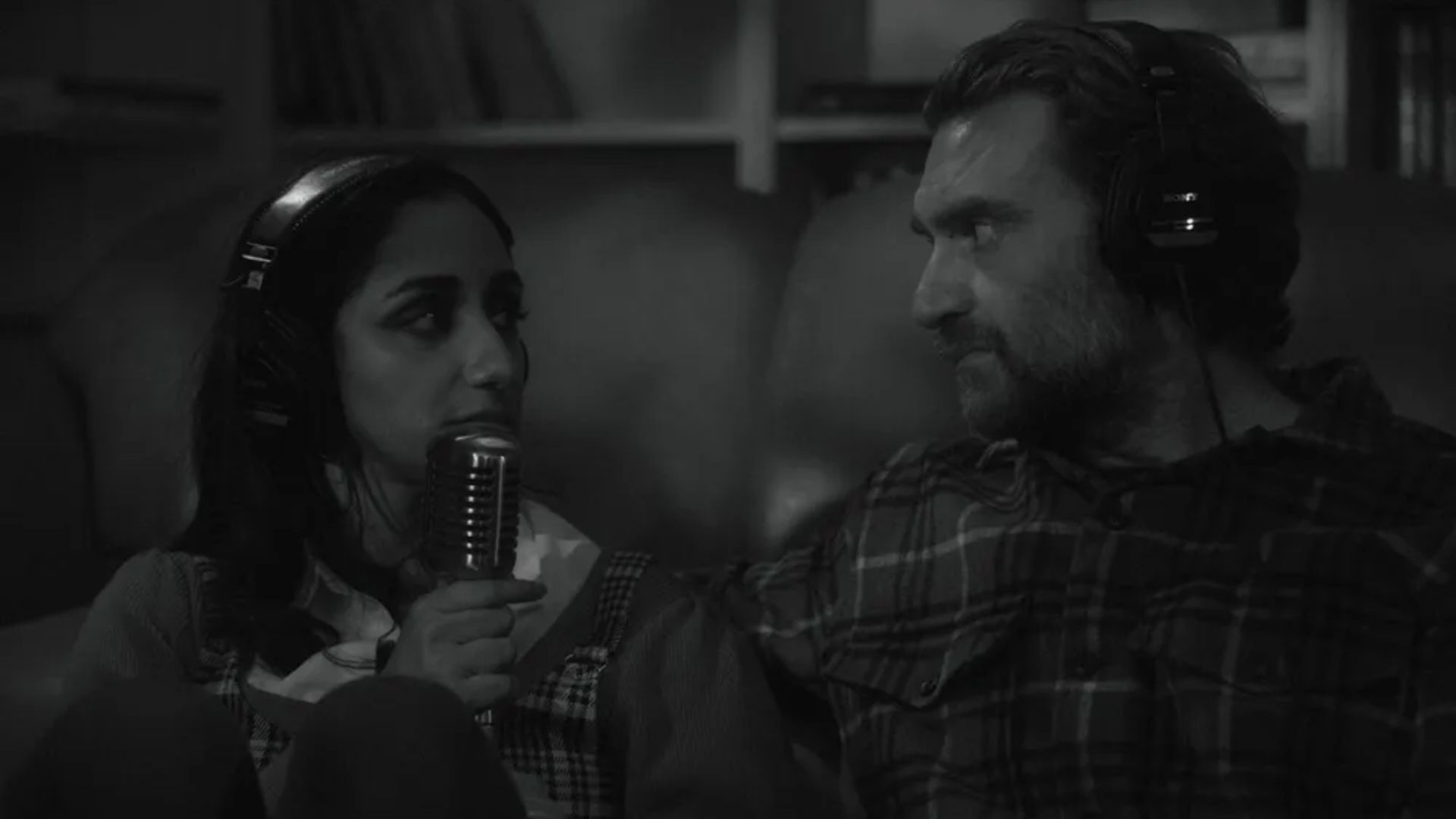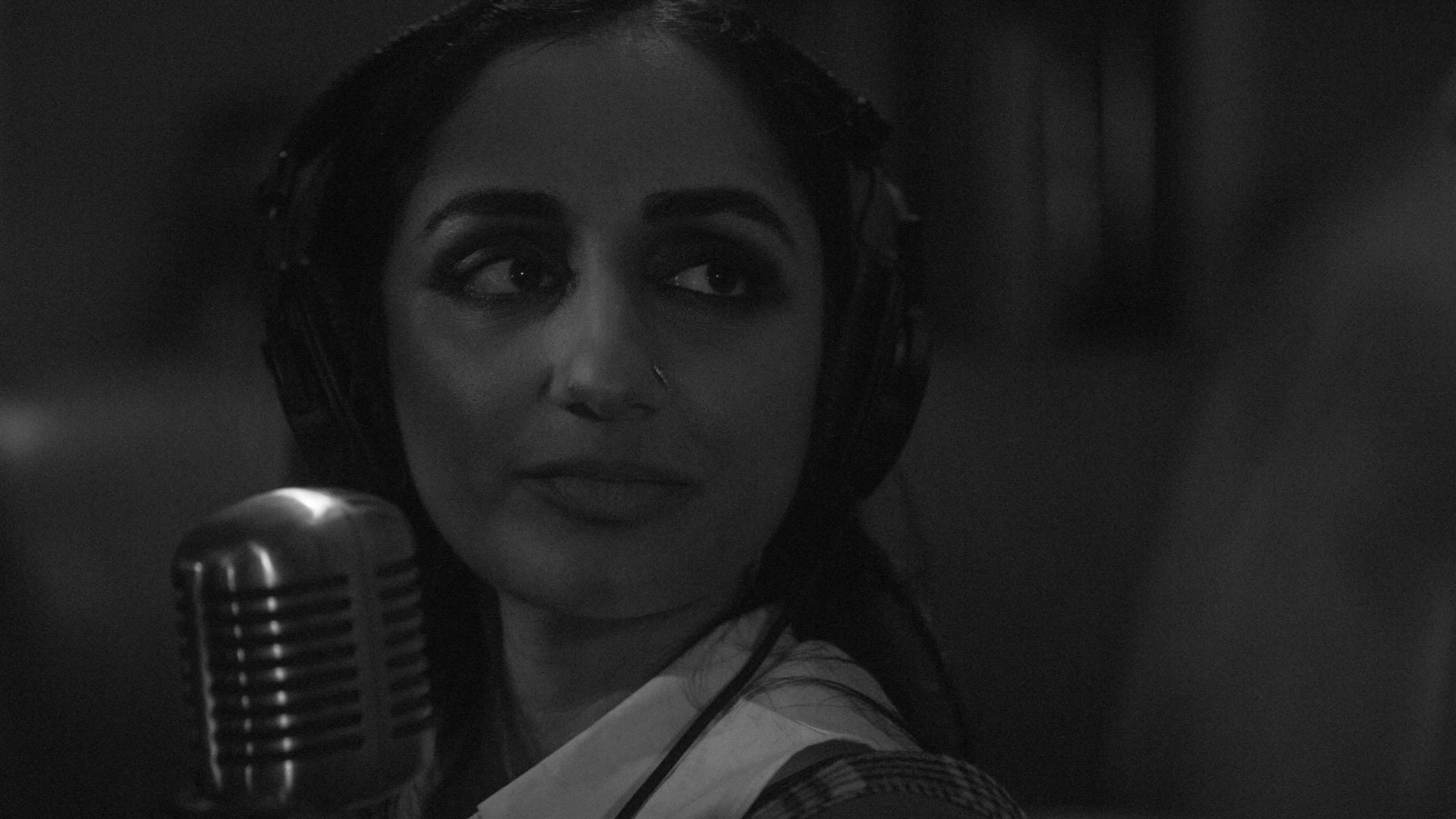
Meera Menon’s “Didn’t Die” opens in a post-crisis America overrun by zombies. A podcast host struggles to maintain relevance amidst societal collapse, clinging to a shrinking audience. However, the dark humor and monochrome style of this zombie comedy, “Didn’t Die,” delves deeper than the undead. It explores the isolation that persists even when survival is achievable. In such a world devoid of community, culture, and infrastructure, how do we communicate effectively? Who among the listeners truly pay attention, and does it even matter?
The movie chronicles the life of Vinita (Kiran Deol), a witty and self-aware podcast host with a knack for delivering post-apocalyptic news using the detached irony that millennials have mastered as a means of coping. In this world, where dangerous creatures known as “biters” roam, human contact becomes scarce. However, as the plot of Didn’t Die unfolds, Vinita’s ironic facade starts to crumble, revealing a story that is fundamentally about grappling with the reality of life when it’s not just about avoiding death, but making the choice to live.
Zombies, Podcasts, and Pandemic-Era Anxieties
Menon deliberately crafted the movie “Didn’t Die” to serve as both a zombie story and an exploration of modern pandemics. The film’s use of black-and-white cinematography is reminiscent of “Night of the Living Dead“, which employed the undead to reflect America’s deepest fears. However, while George A. Romero’s work was a direct critique of race and media, Menon centers her themes around contemporary isolation and self-absorption; she explores how, even in the face of global catastrophe, people continue to prioritize shaping their online personas, delivering soliloquies into an empty digital void.
The movie starts off vividly, with Vinita, trapped inside her Tesla, sticking to daily routines. It later transpires that a solitary figure, identified as Vinita’s younger brother Rishi (Vishal Vijayakumar), is plastering advertisements for her podcast on deserted urban walls. Somebody remains concerned, or at the very least, attentive. Despite the apocalypse, the grind continues.
In Vinita’s performance, she employs a dry, self-effacing manner that hides her apprehensions, yet it also sets boundaries. Throughout the movie, survival for Vinita isn’t just about staying alive physically; it’s also an emotional survival, achieved by maintaining a distance from others through humor. However, when her former lover, Vincent (portrayed by George Basil), shows up carrying a baby, the barriers she had meticulously constructed around herself begin to crumble.
A World That Refuses to Die

Unlike many zombie movies, “Didn’t Die” seldom concentrates on the real undead creatures called biters. They are present, yet they stay in the background, serving as a constant danger that comes into play only when the story necessitates it. Instead, the filmmaker, Menon, chooses to explore how individuals adapt (or struggle) amidst the wreckage. A poignant and humorously understated scene showcases a character discussing a baby’s emotional upheaval, which, in jest, poses a profound question: what constitutes emotional stability when the very foundation of our world is unstable?
A recurring idea is the incongruity between everyday silliness amidst crisis. In the face of apocalypse, jokes like graffiti of male anatomy on walls and windows can still bring a chuckle. People continue to bicker over food, fumble through flirtation, and reminisce about past relationships that crumbled before the pandemic. Additionally, there’s still red tape – procedures, rules, and power structures that linger long after their relevance has passed.
Menon skillfully explores the concept of absurdity in various nuanced manners. The movie’s monochrome style is occasionally interrupted by fuzzy 8mm flashbacks – home videos, birthdays, fleeting glimpses of a reality long gone. These scenes don’t merely provide background information; they make us ponder on the delicate nature of memory, which can be easily reshaped by nostalgia and sorrow. When clinging to the past is the key to survival, what happens when that past was already fading away?
A Zombie Film That’s About the Living

A significant criticism and contrast of the film “Didn’t Die” lies in its disregard for conventional horror movie elements. Although zombies are featured, they seldom take center stage. Instead, the film’s most impactful scenes revolve around character-driven exchanges, particularly between Vinita and Vincent. Their dialogues convey a sense of authenticity, and their conflicts resonate deeply. They aren’t merely coexisting; they are continuously reassessing their relationship in light of the apocalyptic world, pondering if love can still exist when there is no hope for salvation.
The main issue with “Didn’t Die” lies in its struggle to maintain a balance. Although it excels in portraying emotional scenes, the horror aspects often seem like an additional requirement rather than a fundamental part of the movie’s essence. Some zombie attacks lack impact, their execution is not precise, and the danger they pose is inconsistent. The film experiences a tug-of-war between its existential themes and genre requirements, and when these elements don’t harmoniously blend, the movie loses some of its pace.
In simpler terms, the podcast’s portrayal of isolation during the pandemic is quite striking. The idea of a post-apocalyptic podcast tour seems both amusing and painfully accurate. Despite the chaos, people are still striving to maintain their image, clinging to any semblance of relevance in an increasingly chaotic world – it’s a unique, contemporary kind of terror that is characteristic of this generation.
A Film That Doesn’t Quite Die, But Lingers

This movie delves into intriguing concepts regarding grief, bonding, and our tendency to hold onto past habits as the world undergoes transformation. The focus is not so much on the technical aspects of horror, but rather on how individuals endure one another during challenging times.
Meera Menon has skillfully created a work that feels both personal and distant, emotionally impactful yet slightly askew from its genre norms. Although Didn’t Die doesn’t always deliver a perfect ending, it stands out as an engaging addition to the continually changing zombie movie genre—a production that grasps the notion that what is truly terrifying isn’t the undead. It’s the fear of being forgotten. Didn’t Die was screened at the 2025 Sundance Film Festival. For more details, click here.
Read More
- Fortress Saga tier list – Ranking every hero
- Cookie Run Kingdom Town Square Vault password
- Glenn Greenwald Sex Tape Leak: Journalist Cites “Maliciously Political” Motives
- Grimguard Tactics tier list – Ranking the main classes
- Mini Heroes Magic Throne tier list
- How to Prepare and Dominate the Awakened Hollyberry Cookie Update
- Overwatch Stadium Tier List: All Heroes Ranked
- Hero Tale best builds – One for melee, one for ranged characters
- Castle Duels tier list – Best Legendary and Epic cards
- Cookie Run Kingdom: Shadow Milk Cookie Toppings and Beascuits guide
2025-02-04 05:05